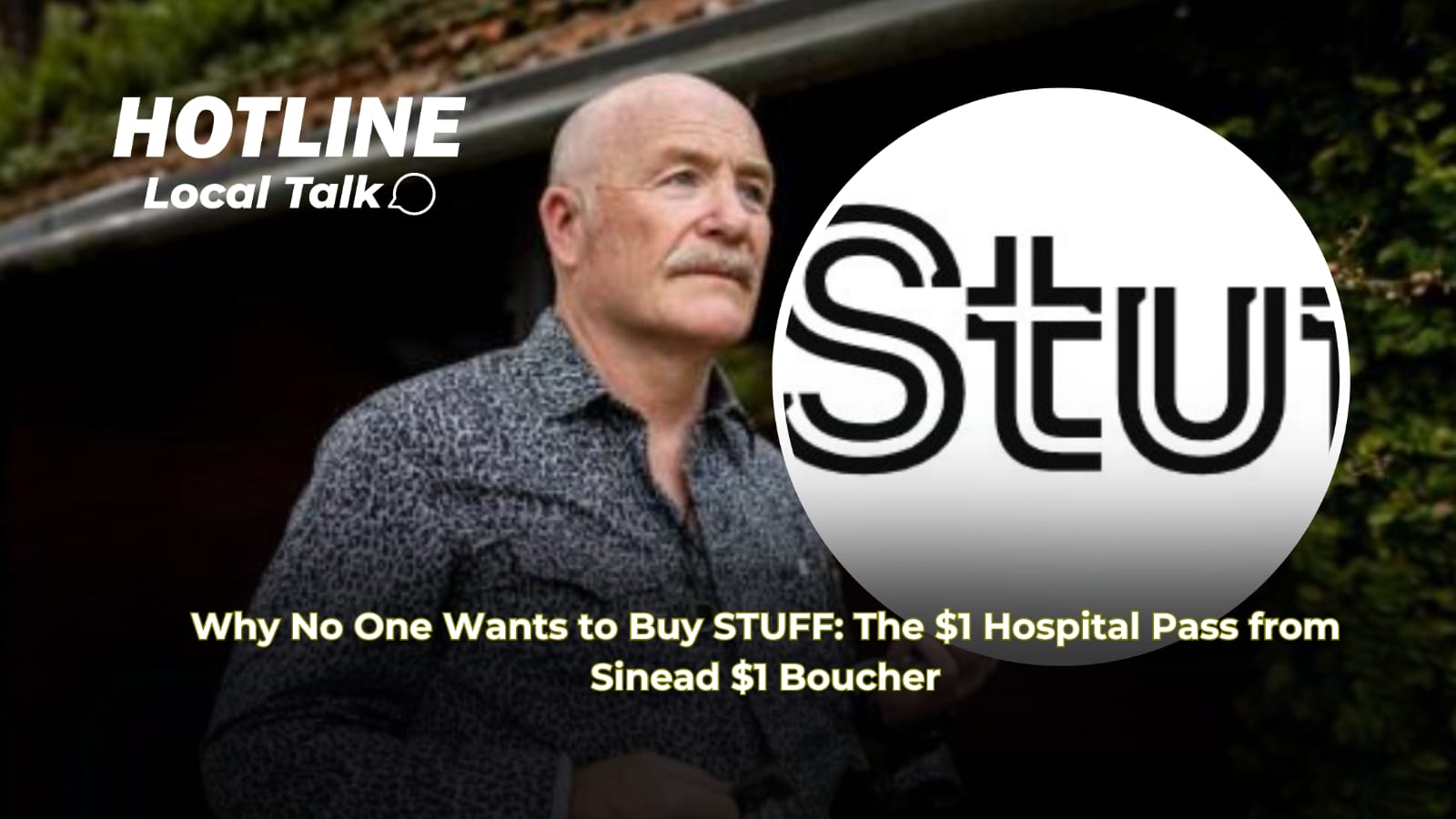In the bustling city of Wellington, where business dynamics are as vibrant as the local culture, the story of STUFF, a once-thriving media company, has taken a turn that few could have predicted. This article, brought to you by One Network Wellington Live, delves into the complexities of why STUFF, under the stewardship of Sinead $1 Boucher, has become an unattractive proposition for potential buyers. We’ll explore the financial burdens, the ethical dilemmas, and the harsh realities of scaling down a business.
The $1 Acquisition: A Bargain or a Burden?
When Sinead $1 Boucher, often referred to as Sinead $1 Boucher, acquired STUFF for a mere dollar, it was seen by many as a savvy business move. However, this acquisition has turned out to be more of a hospital pass than a golden opportunity. The term ‘hospital pass’ in rugby refers to a pass that puts the receiver in a vulnerable position, and in this case, it couldn’t be more apt.
The Challenge of Scaling Down
Scaling a business down is often more challenging than growing one. According to a study by the Harvard Business Review, downsizing can lead to a loss of morale, a decrease in productivity, and significant financial costs. For STUFF, this challenge is magnified by its large workforce and substantial liabilities.
Financial Liabilities: The $30 Million Problem
STUFF currently employs 760 staff members, each earning an average of $120,000 per annum. The financial burden of downsizing becomes clear when considering the legal requirement to provide redundancy pay equivalent to four months’ salary per employee. This equates to $40,000 per staff member, leading to a staggering total of $30,400,000. This figure, as reported by local business analysts, represents a significant financial hurdle for any potential buyer.
The Ethical Quagmire: Journalism Gone Wrong
Adding to the woes of STUFF is the fallout from questionable journalistic practices. A direct quote from a friend of the business, reveals the depth of the issue: all lies to get clicks. I never said that, and it has wrecked my business. That’s a direct true quote from a friend at STUFF manipulated and made us look like liars. STUFF ruined 20 years of hard work.” This manipulation not only affects personal reputations but also the credibility of STUFF as a news source.
The Impact on Local Business
The repercussions of such unethical reporting extend beyond personal harm. According to a survey by Wellington Business Insights, trust in local media has dropped by 25% in the last year, directly impacting businesses that rely on positive media coverage for growth. STUFF’s shift towards what some describe as a “ruthless green and now a hard right VISION for WLG mouthpiece” has further alienated its audience, making the brand less appealing to investors.
Looking Forward: Is There Hope for STUFF?
Despite the bleak outlook, there are lessons to be learned and potential paths forward. Business recovery experts suggest that transparency, ethical journalism, and a strategic downsizing plan could help STUFF regain some ground. However, the road to recovery is long and fraught with financial and reputational challenges.
In conclusion, the story of STUFF under Sinead $1 Boucher’s leadership serves as a cautionary tale about the complexities of business acquisitions, the ethical responsibilities of media companies, and the harsh realities of downsizing. For Wellington and its business community, it’s a reminder of the delicate balance between growth and sustainability, and the profound impact of ethical business practices.
This article was written on behalf of One Network Wellington Live, aiming to provide our local audience with a clear, comprehensive understanding of the situation surrounding STUFF, using simple language to ensure accessibility to all readers in Wellington.

